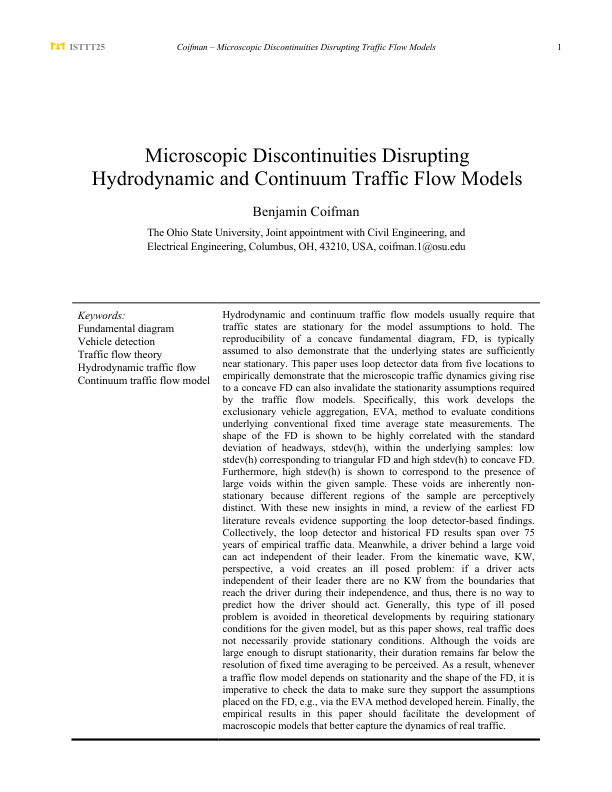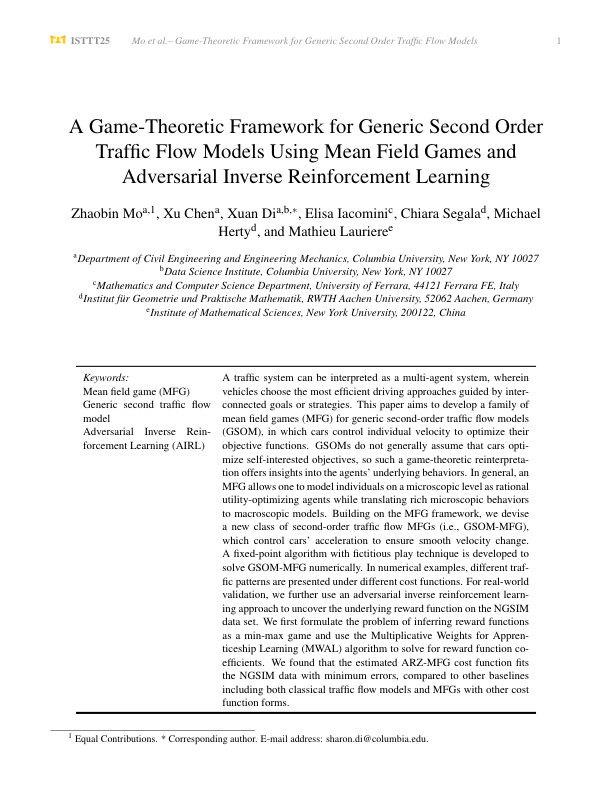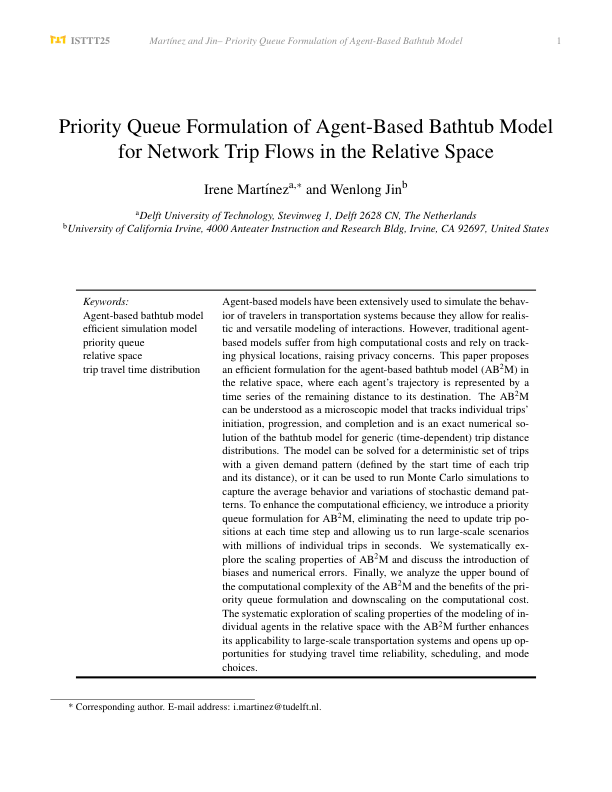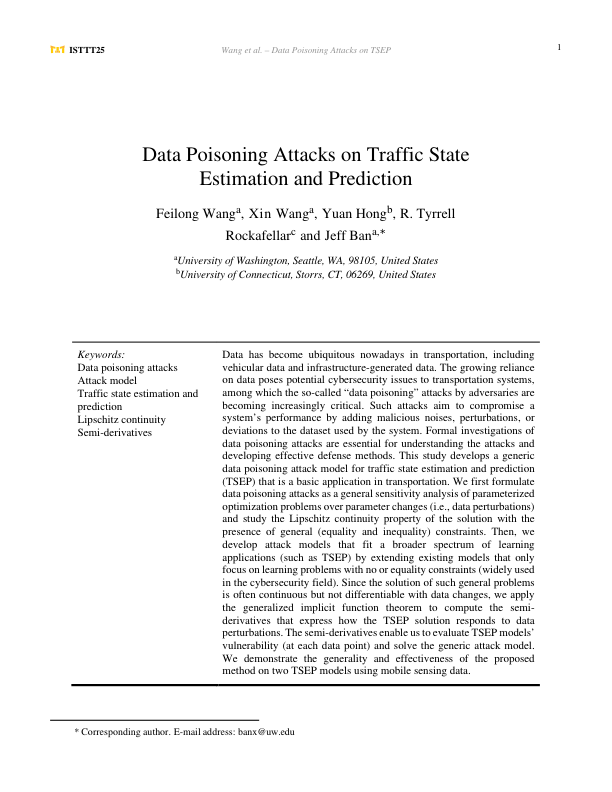
Podium Session 9: Microscopic Discontinuities Disrupting Hydrodynamic and Continuum Traffic Flow Models
Title: Microscopic Discontinuities Disrupting Hydrodynamic and Continuum Traffic Flow Models
Authors: Benjamin Coifman
Abstract: Hydrodynamic and continuum traffic flow models usually require that traffic states are stationary for the model assumptions to hold. The reproducibility of a concave fundamental diagram, FD, is typically assumed to also demonstrate that the underlying states are sufficiently near stationary. This paper uses loop detector data from five locations to...
Keywords: Fundamental diagram; Vehicle detection; Traffic flow theory; Hydrodynamic traffic flow; Continuum traffic flow model


